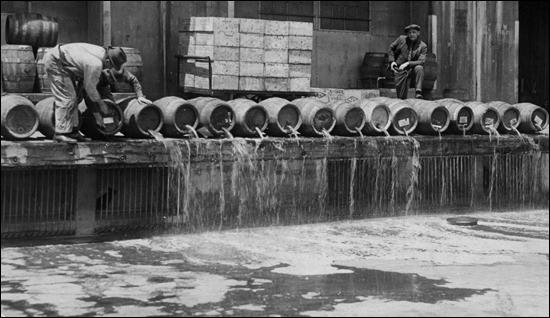The Volstead Act, formally known as the National Prohibition Act of 1919, was passed on October 28, 1919, to implement the eighteenth amendment, which prohibited the manufacture, sale, or transportation of intoxicating liquors and beverages in the United States.
Wayne Wheeler of the Anti-Saloon League conceived and drafted the bill, named after the Chairman of the House Judiciary Committee, Andrew Volstead. The 18th amendment to the US constitution banned the production, sale, and transport of intoxicating liquors. However, they did not clearly define intoxicating liquors or even provide penalties. Instead, it granted both the state and federal governments the power to enforce the ban by appropriate legislation.
Moreover, the act was vetoed by President Woodrow Wilson on October 27, 1919, on technical grounds because it covered wartime prohibition. Despite this, his veto was overridden by the House on the same day and by the Senate a day later.
The Volstead act had three distinct purposes, these were:
- Ban intoxicating beverages such as beer, liquor, and alcohol,
- Ensure an ample supply of alcohol and promote its use in scientific research and the development of fuel, dye, and other lawful industries,
- Regulate the manufacture, production, use, and sale of high-proof spirits for other than beverage purposes.
Furthermore, the main expected result of the Volstead Act was to prolong wartime measures to peacetime. However, once the prohibition was passed, it proved extremely difficult to enforce. Although general drinking was thought to have declined, it had relentlessly continued in several parts of the country, especially in large cities and areas with large foreign-born populations.
Moreover, critics pointed out the unfortunate effect of the law, which was consistently violated by citizens, and maintained that supplying illegal liquor was profitable and helped foster the growth of organized crime and corruption in public offices.

